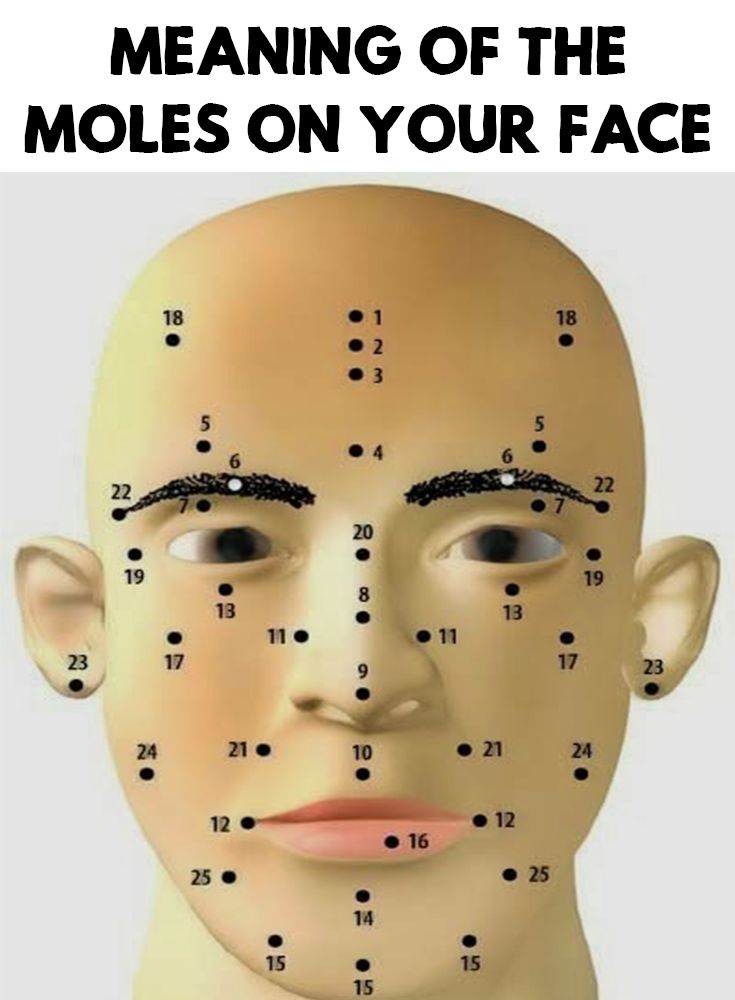The significance of moles on the body has intrigued people for centuries, often sparking curiosity and concern. Moles, or nevi, are common skin growths that can vary in size, shape, and color. While many people view them as mere cosmetic features, understanding the deeper implications of moles can provide valuable information about our health. In this article, we will explore the various meanings of moles, their potential health risks, and how to monitor them effectively.
In addition to their aesthetic presence, moles can serve as indicators of skin health and potential medical conditions. Various cultures have attributed different meanings to the location and appearance of moles on the body, leading to fascinating interpretations. As we delve into this topic, it is crucial to recognize that while some moles are harmless, others may require medical attention.
This comprehensive guide will cover the significance of moles, including their health implications, cultural meanings, and how to care for them. By the end of this article, readers will have a better understanding of the role moles play in our lives and when to seek professional advice regarding their skin health.
Table of Contents
- What Are Moles?
- Types of Moles
- Health Significance of Moles
- Cultural Meanings of Moles
- Monitoring Moles: When to Seek Help
- Mole Removal: Options and Considerations
- Prevention Tips for Skin Health
- Conclusion
What Are Moles?
Moles are clusters of pigmented cells known as melanocytes that appear on the skin's surface. They can be flat or raised and can range in color from tan to dark brown or black. Most people have between 10 to 40 moles on their bodies, and they typically develop during childhood and adolescence. Here are some key points about moles:
- Moles are benign growths and are generally harmless.
- They can appear anywhere on the body, including the face, arms, and legs.
- Factors such as genetics and sun exposure can influence the number and type of moles a person has.
Types of Moles
There are several types of moles, each with distinct characteristics:
1. Congenital Nevi
These moles are present at birth and can vary significantly in size. Larger congenital nevi have a higher risk of developing into melanoma.
2. Acquired Nevi
Most moles that develop during a person's life are acquired nevi. They typically appear during childhood or adolescence and may change over time.
3. Atypical Nevi
Atypical moles, or dysplastic nevi, have irregular shapes and colors. They may be larger than average and can indicate an increased risk of skin cancer.
Health Significance of Moles
The health significance of moles cannot be overstated. While most moles are benign, certain characteristics may indicate a risk for skin cancer, particularly melanoma. Here are some important health considerations:
- Monitor changes in the appearance, size, or color of moles.
- Look for asymmetry, irregular borders, multiple colors, a diameter larger than a pencil eraser, or any changes in elevation.
- Consult a dermatologist if any mole exhibits concerning features.
Cultural Meanings of Moles
Throughout history, various cultures have attributed meanings to moles based on their location on the body. Here are some fascinating interpretations:
- In some cultures, a mole on the right cheek symbolizes good luck and prosperity.
- A mole on the left hand is often associated with a passionate nature.
- Moles on the forehead may indicate intelligence and wisdom.
Monitoring Moles: When to Seek Help
It is crucial to monitor moles regularly for any changes. Here are some guidelines for effective monitoring:
- Perform self-examinations monthly to check for new moles or changes in existing ones.
- Use the ABCDE rule: Asymmetry, Border, Color, Diameter, and Evolving to assess moles.
- Schedule annual skin examinations with a dermatologist for professional evaluation.
Mole Removal: Options and Considerations
If a mole is concerning or bothersome, several removal options are available:
- Excision: The mole is cut out along with a small margin of surrounding skin.
- Shave removal: The mole is shaved off at the skin's surface.
- Laser removal: A laser is used to eliminate the mole.
Consulting a dermatologist is essential to determine the best approach based on individual circumstances.
Prevention Tips for Skin Health
Maintaining healthy skin can help reduce the risk of developing problematic moles. Here are some preventive measures:
- Use sunscreen with at least SPF 30 daily to protect against UV rays.
- Avoid tanning beds and excessive sun exposure, especially between 10 a.m. and 4 p.m.
- Wear protective clothing and hats when outdoors.
Conclusion
Understanding the significance of moles on the body is essential for maintaining skin health and identifying potential risks. Regular monitoring and awareness of changes can help in early detection of skin conditions, including melanoma. It is vital to seek professional assistance if any mole appears suspicious or changes in appearance. By taking proactive steps in caring for our skin, we can enjoy a healthier and more informed lifestyle.
We encourage readers to engage with this content by leaving comments, sharing their insights, or exploring more articles on skin health. Together, we can foster a community dedicated to understanding and valuing the importance of skin health.
Thank you for reading! We hope to see you back for more informative content.




